Our story
THE COMPANY CELEBRATES ITS CENTENARY
For Rougier, the year 2023 marks much more than just a number, the centenary celebrations of the foundation of our company. It represents the recognition of one hundred years of human endeavours in the field of forestry – and a commitment that was ground-breaking in our industry – the desire to manage the forest sustainably, driven by our wish to see this approach placed at the heart of everything we did.
A CENTURY OF DEDICATION TO THE SERVICE OF FORESTRY
Discover
100 years of Rougier
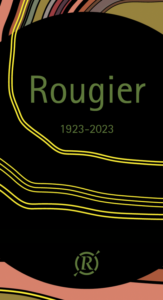
Since 1994, forest management has been core to our growth strategy
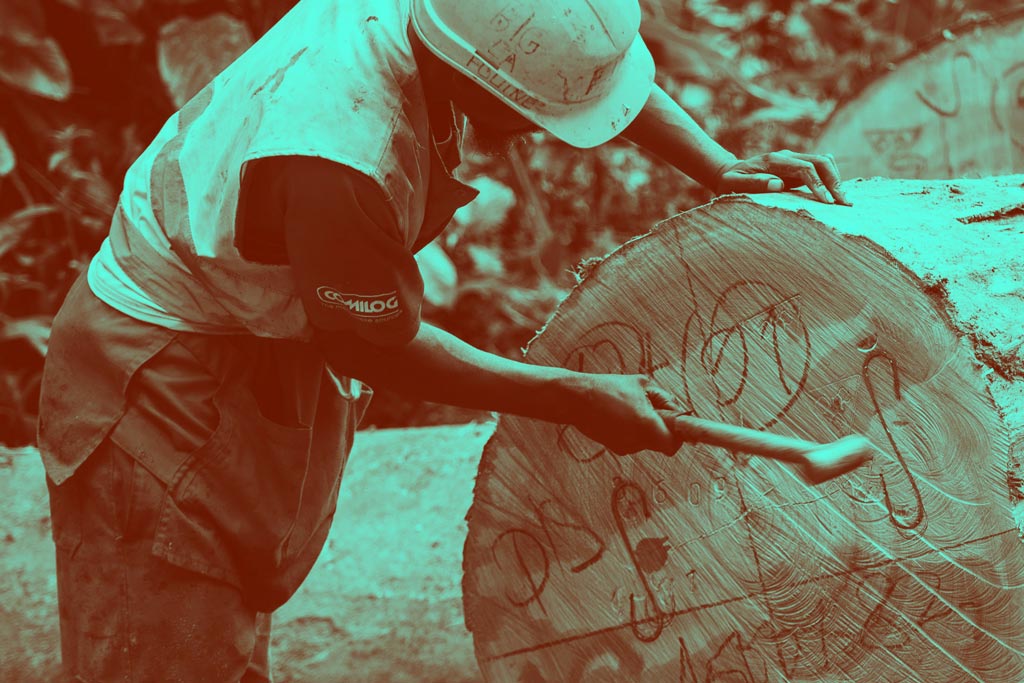
2020
Rougier Gabon establishes itself as a key supplier to the Gabonese industrial sector by signing a contract to supply FSC®-certified Okoumé peeler logs to StarPly Gabon.
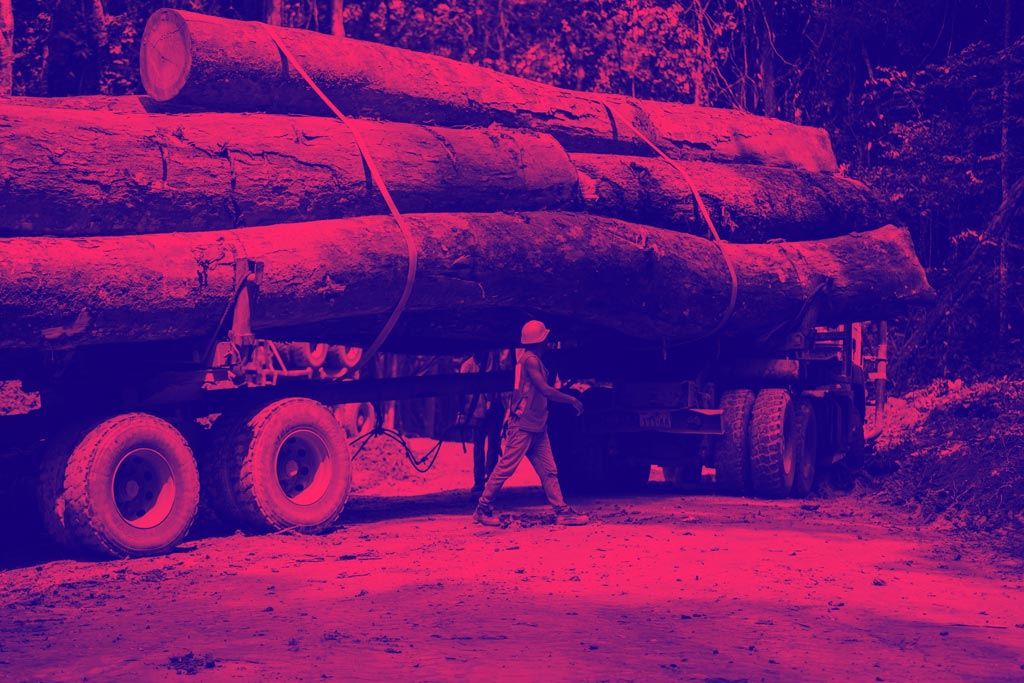
2019
FSC® certification is renewed for a second time in Gabon, with all four concessions obtaining certification.

2014
FSC® controlled Wood certification is issued to SFID by the Rainforest Alliance for the second time in recognition of the sustainable management of its concessions (272,000 hectares) outside Djoum.
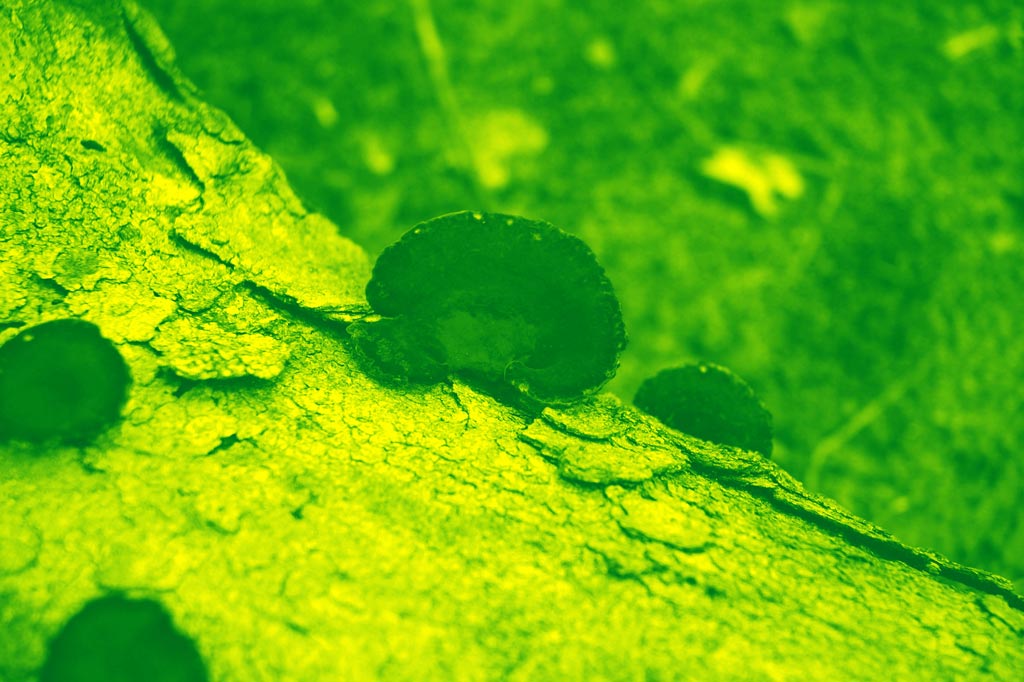
2013
Rougier Gabon renews its certification for the first time.
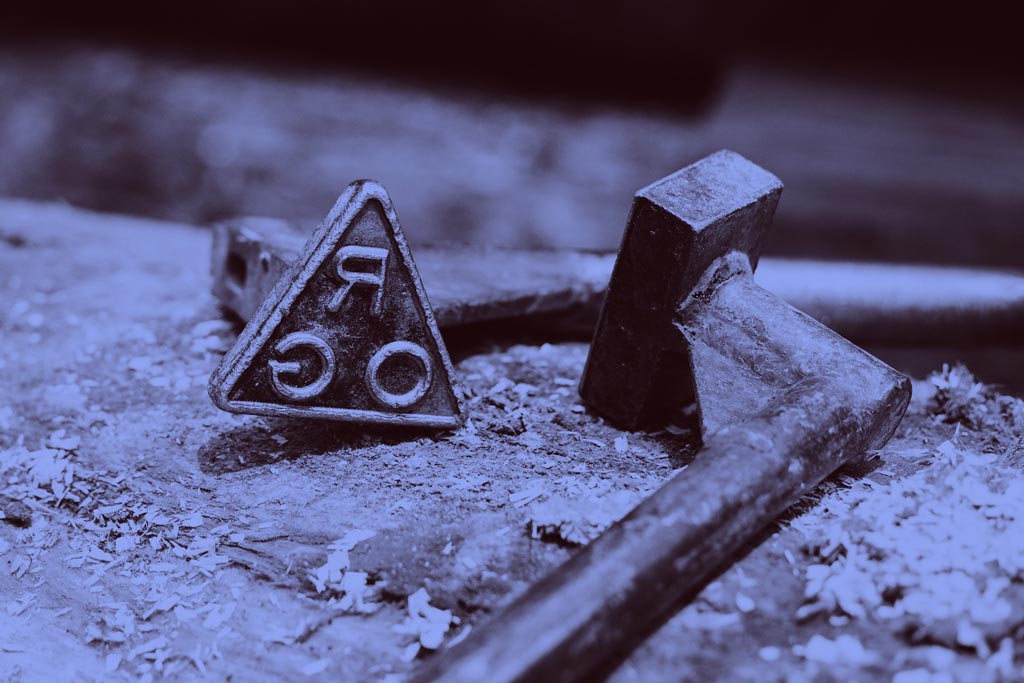
2013
SFID, following hard on the heels of Rougier’s subsidiaries, obtains FSC® certification from the Rainforest Alliance in recognition of its sustainable management of some 285,667 hectares.
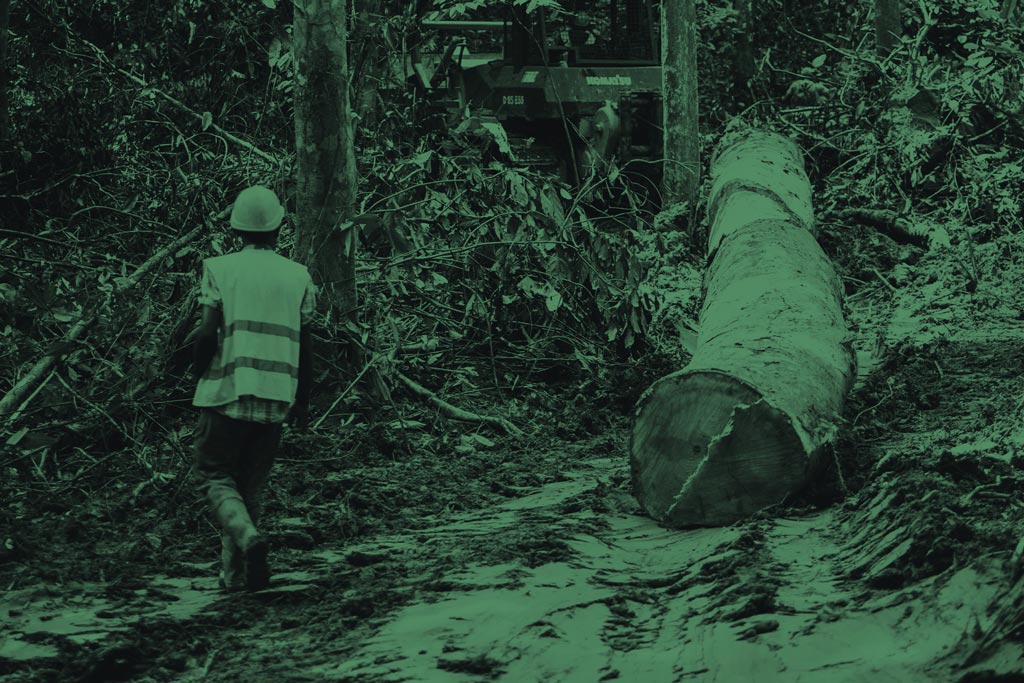
2009
Rougier Sylvaco, which at the time was importing and selling a wide range of lumber, plywood and processed solid wood products for a range of uses, receives FSC® certification.

2008
Rougier Gabon successfully obtained certification from the international certification scheme owner, the Forest Stewardship Council (FSC®) of 688,000 hectares of concessions that it manages. A second significant step is taken in our drive towards sustainable forest management when Rougier International’s and Rougier Panneaux’s chains of custody also received FSC® certification.
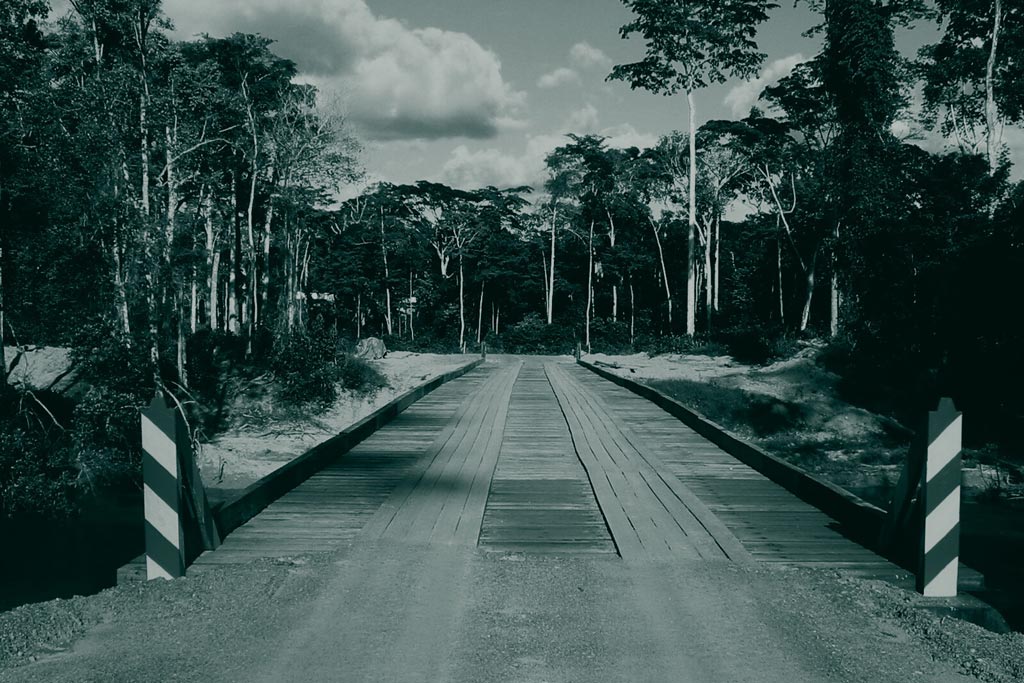
1998
First forest management plan applied to several combined concessions in the Haut Abanga area in the shape of one of Gabon’s first UFAs (forestry management units) to be approved by the state.

1994
This year marks Rougier’s first steps in sustainable forest management, which is now an integral part of our business strategy.
Rougier, a family affair since 1923
The genesis of our story…
2018
All assets in Cameroon are sold. Sale of ROUGIER SYLVACO.
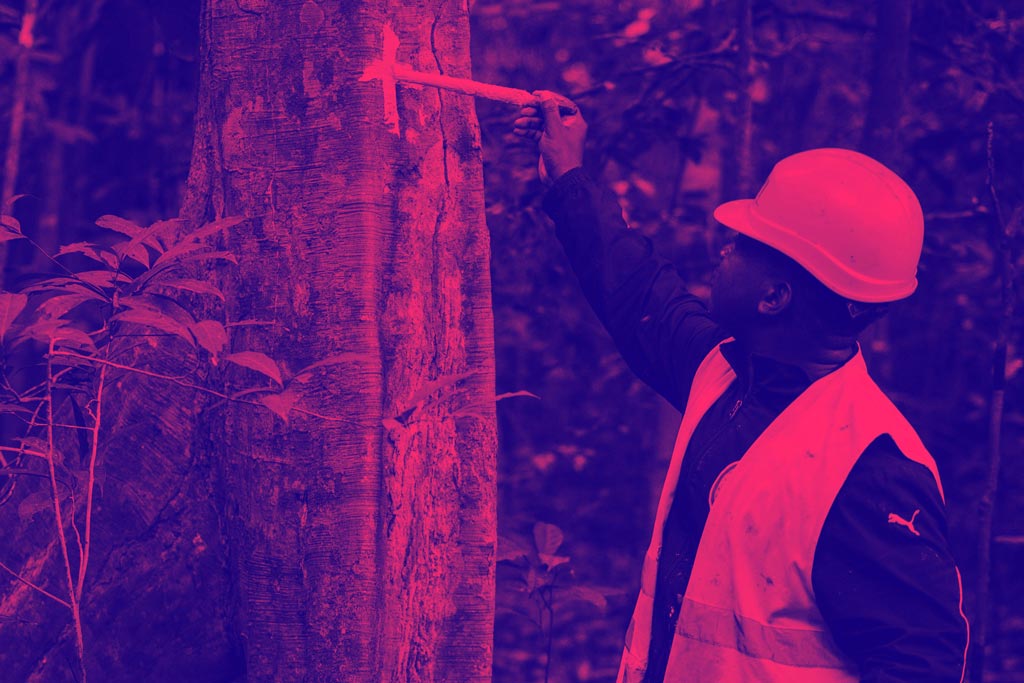
2005
In the Republic of the Congo, forest concessions and the Moualé plant were purchased from CRISTAL, located a short distance from MOKABI. Pooling of forest concessions and expansion of the Moualé plant.
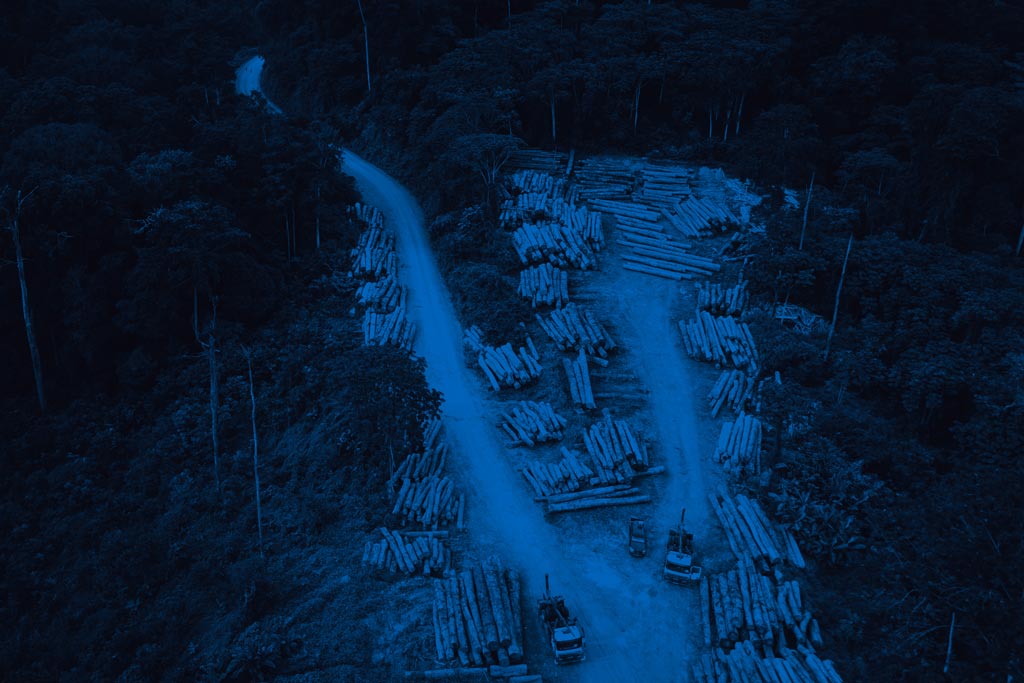
1998 to 2005
In the south-east of Gabon, in Haut-Ogooué province, some 200,000 hectares of forest concessions were purchased and amalgamated. A sawmill equipped with kiln dryers was built in Mbouma, near Franceville. It was opened by President Omar Bongo Ondimba.
2000
A new subsidiary, Mokabi, is established in the far north of the Republic of the Congo, being opened by the President of the Republic, Denis Sassou Nguesso. The business started off with just one forest concession (UFA) and began constructing a wood processing plant (a sawmill).

1997
ROUGIER’s sales activities are structured according to core activity: ROUGIER PANNEAUX and ROUGIER SYLVACO focus on imports and sales in France; ROUGIER INTERNATIONAL focuses on international trade.
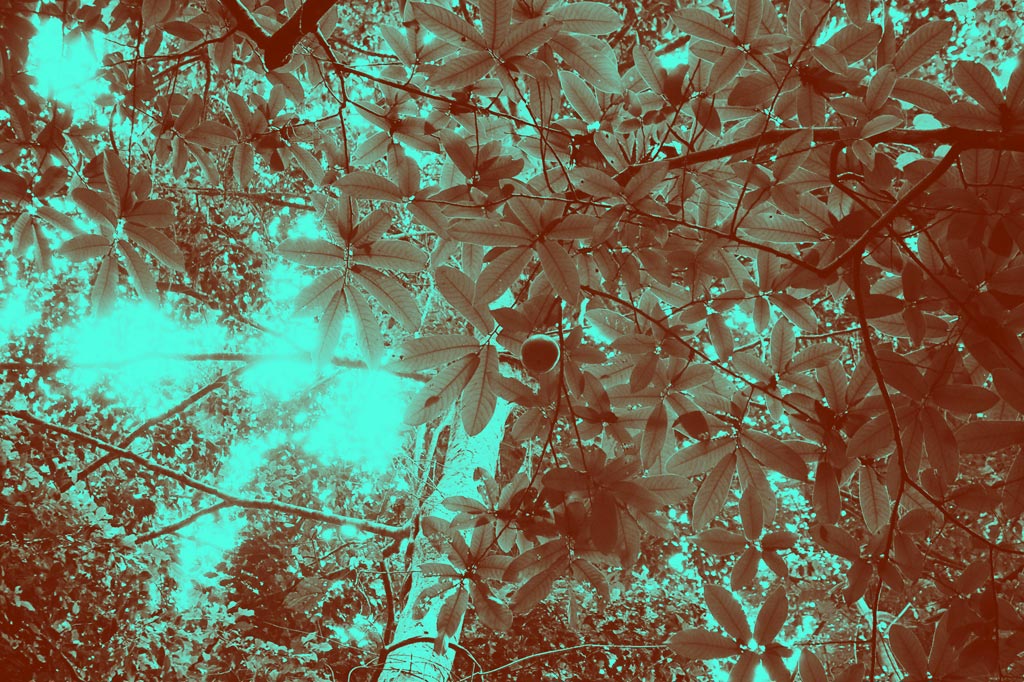
1995
Bois Panneaux Rougier (BPR) was founded to sell plywood produced in Gabon.
1986
Sale of SCAD, Central African Republic.
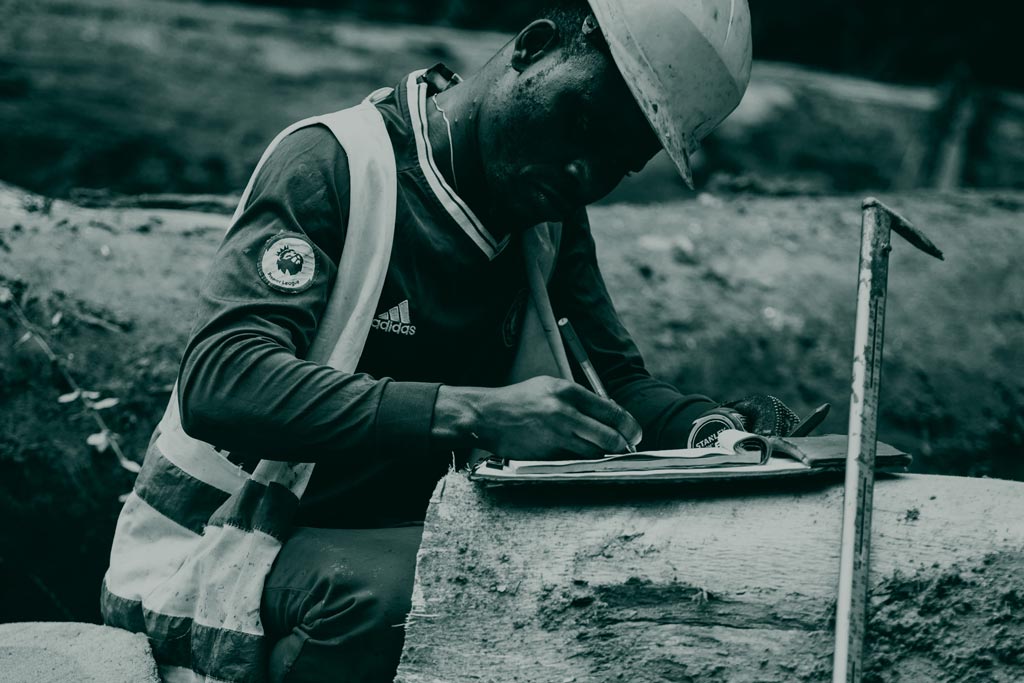
1984 and 1988
SFID continued to do well with the acquisition of a new logging concession and a sawmill in eastern Cameroon (Mbang). Four years later and new concessions and a second sawmill in Djoum, southern Cameroon, were added to the firm’s portfolio.
1983
Etablissements ROUGIER & fils becomes ROUGIER SA
1981
ROUGIER prepares to merge with OCEAN (maritime pine and okoumé plywood, forestry and industrial interests in GABON and the Central African Republic) and LANDEX (Particle boards). ROL (ROUGIER OCEAN LANDEX) is founded, bringing together under one banner the assets of three French-based companies engaged in the manufacture and sale of a wide range of wood panels. OCEAN belonged to Saint Gobain, which was being nationalized. ROUGIER agreed to sell its shares in ROL to Saint Gobain and took over OCEAN’s African assets in Gabon and the Central African Republic.
As a result, ROUGIER’s logging and timber processing activities in Africa expanded significantly. The Mussy Emballage arm of the business also grew until it was sold in 1996.
The company’s involvement in the international timber trade, hitherto very much in its infancy, grew under the SYLVACO banner.
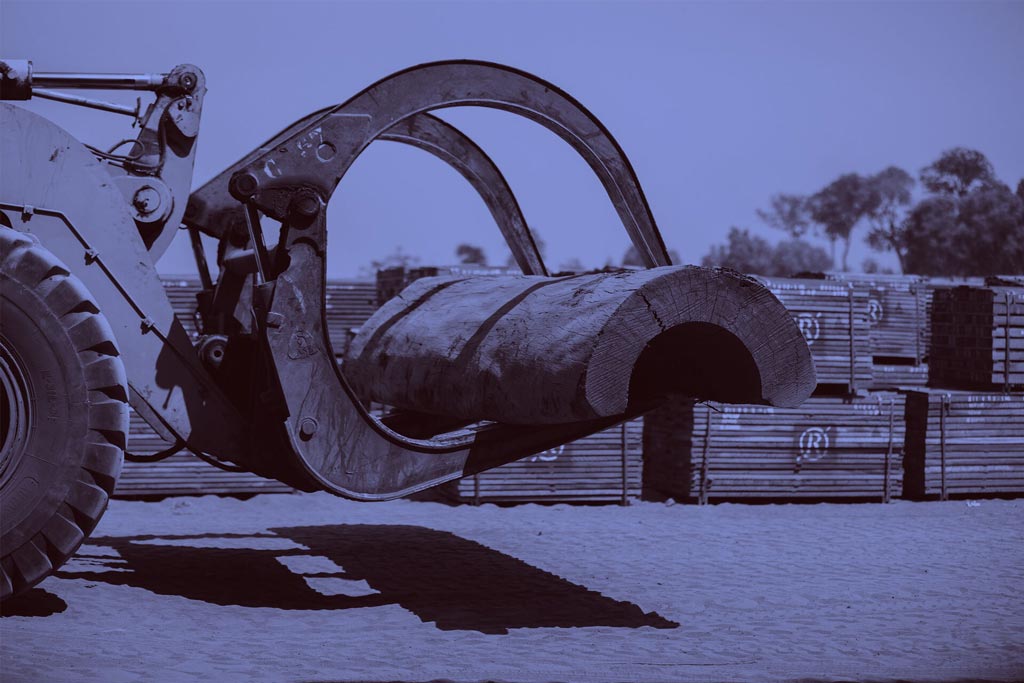
1978
With the opening of the Trans-Gabon railway, SADER in Port Gentil ceases trading. Processing equipment is transferred to Owendo, to the south of Libreville.
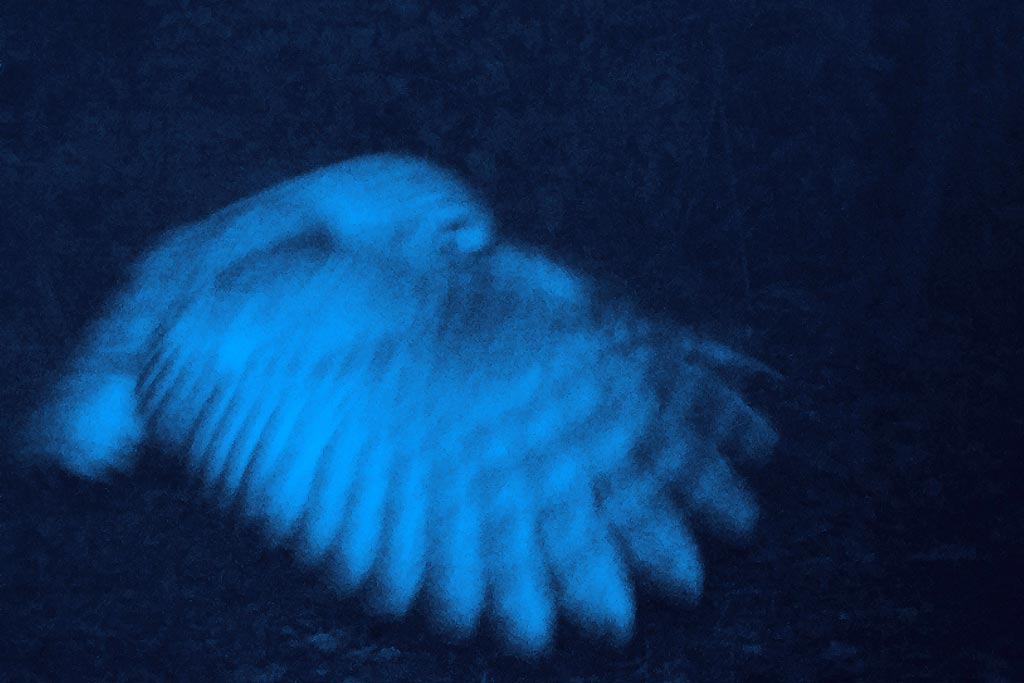
1971
The firm’s operations in French Guiana are wound down. Forestry sector and industrial assets are transferred to Dimako, Cameroon. Production of Ayous wood plywood panels for the local and European markets begins in 1973.
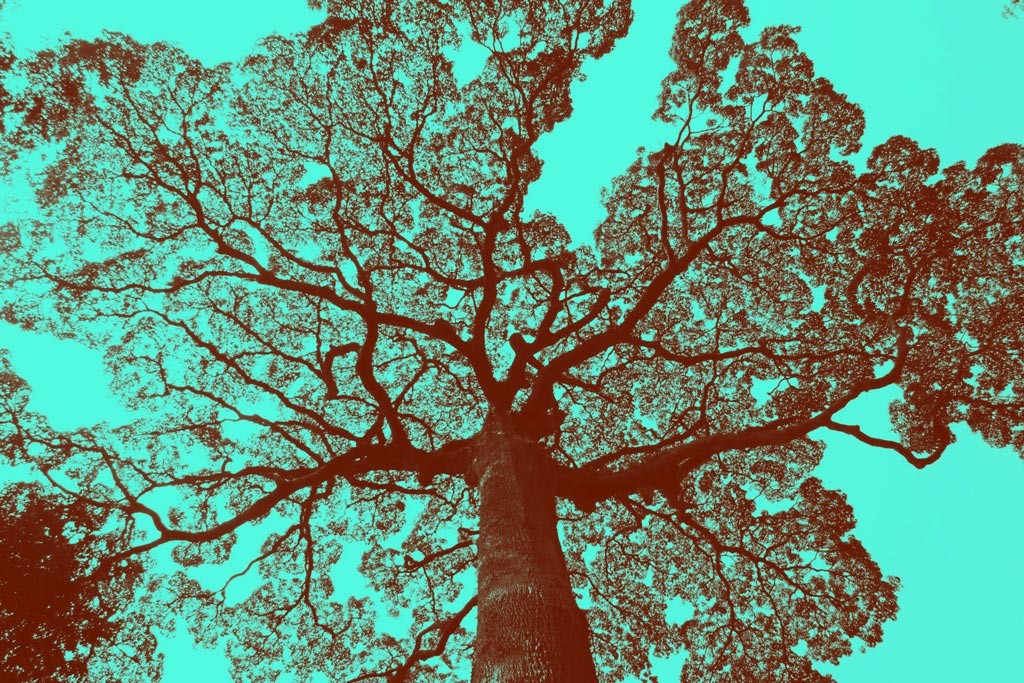
1970
Upon its merger with SA MUSSY, Rougier becomes Europe’s leading manufacturer of particle boards, especially in relation to improving fire and water resistance. Rougier also moves into the top spot in Europe in terms of the production of exotic wood plywood panels.
1969
Takeover of S.A. MUSSY, a manufacturer of particle boards in Mussy sur Seine (10) and Salbris (41) and of agricultural product and industrial packaging in Mussy sur Seine (10) and Mauzé sur le Mignon (79). MUSSY also has a presence in Dimako, Cameroon (SFID) as a logging company and manufacturer of slats made from Ayous wood destined for its packaging factories in France.

1968
Rougier Gabon buys Port-Gentil-based CAP, which is renamed SADER. A drying and rotary-cut veneer production line to supply French factories is created to respond to the Gabonese government’s request for processing to be carried out locally.

1966
ROUGIER establishes itself in the Republic of Vanuatu (at that time called the New Hebrides), with a 33,000-hectare logging concession covering the entirety of Erromango island, which boasted Agathis genus trees and Tamanus. The firm builds a sawmill in Port Vila. In Gabon, the société Forestière de Lambaréné (SFL) was bought up, creating opportunities for a significant expansion in Okoumé logging.
1964
Roger ROUGIER dies. His brother, Maurice ROUGIER, takes on the Chairmanship.
1963
Plywood continues to go from strength to strength! Construction and opening of a modern new exotic wood plywood panel factory in Fontenay-le Comte in the Vendée. ROUGIER also begins logging operations in French Guiana, before building a veneer manufacturing plant in Cayenne in 1967.
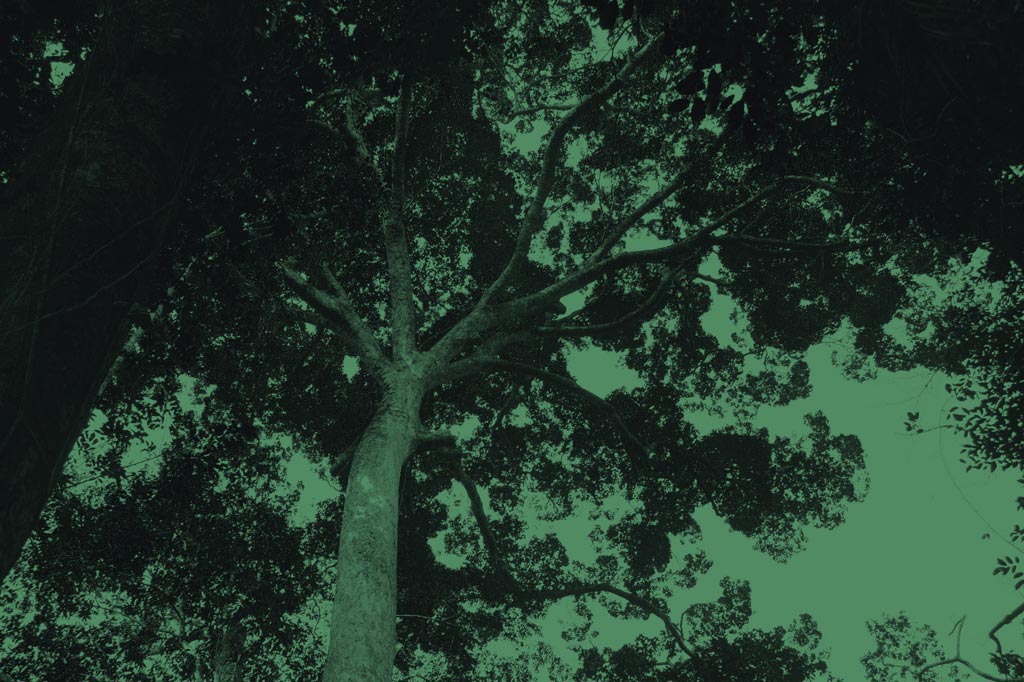
1959
Établissements ROUGIER & fils is listed on the Paris stock exchange.
1954
Death of the company founder, Alexandre ROUGIER. His son, Roger ROUGIER, takes over as Chairman of the firm.
1953
Our business demonstrates yet again its innovative bent by building France’s first particle board factory at the Niort Romagné industrial estate. A second such factory opened up five years later and a third in 1962, all on the same site.
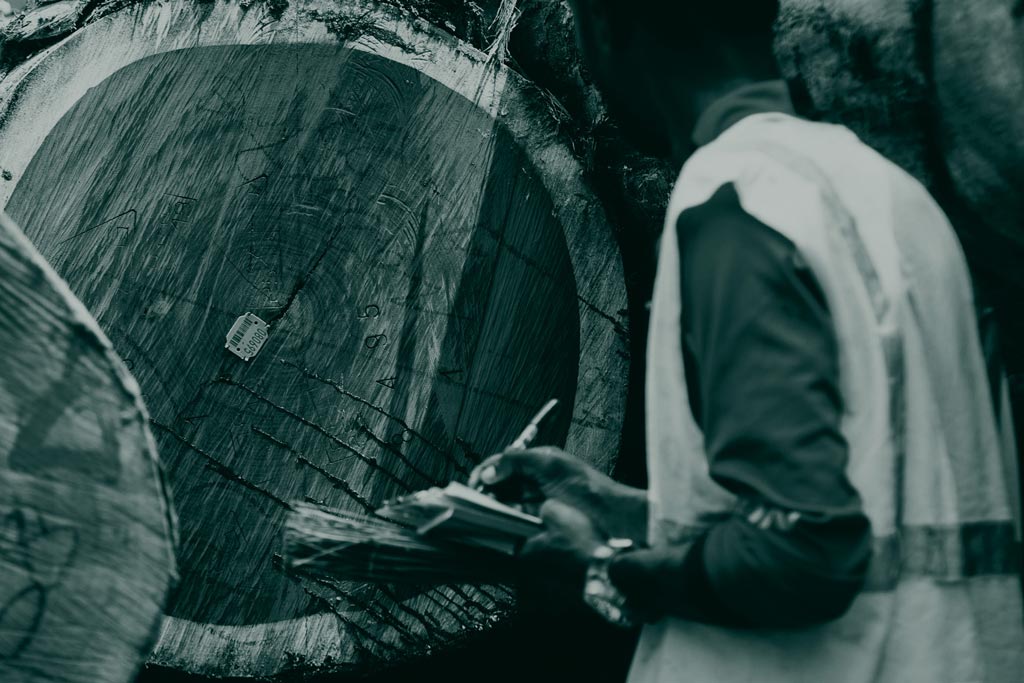
1952
The first crucial step is taken, opening the African chapter of Rougier’s story with the acquisition of the Compagnie Forestière d’Azingo in Gabon, which harvests Okoumé trees. Our first subsidiary outside France is founded and is named ‘Rougier Gabon’.
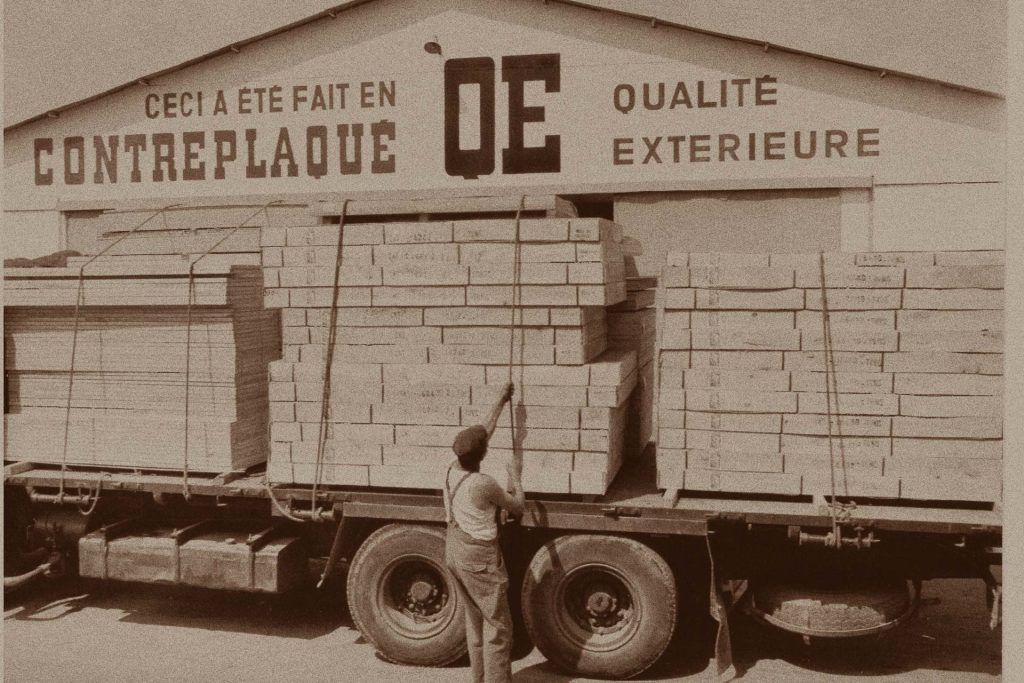
1946
The newly named ‘Ets Rougier et Fils’ resumes plywood manufacturing and steadily expands its activities at its Niort-Saint Symphorien site over the course of the 1950s as a result of post-war reconstruction efforts.
The company starts to look further afield, branching out successfully into new markets (United States, Cuba, United Kingdom).
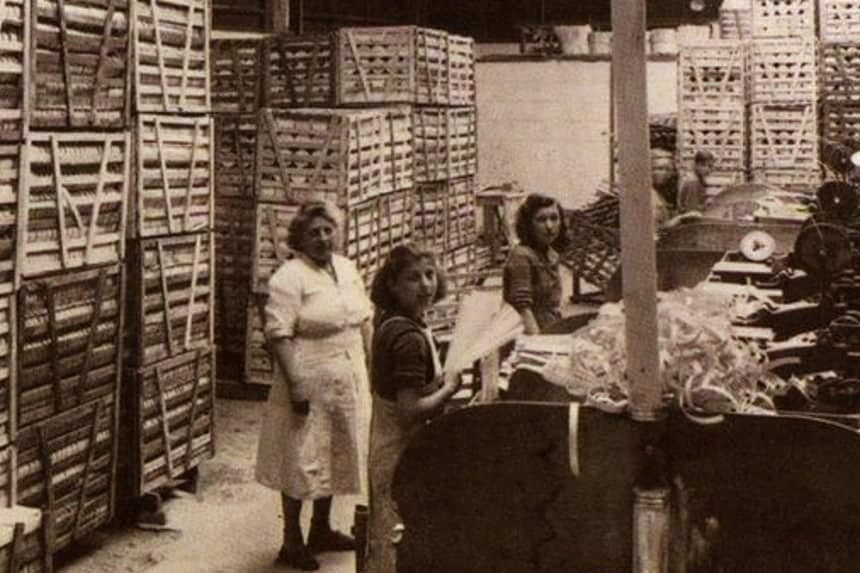
1939
World War Two forces the business to scale back its activities and confine itself to the production of boxes, shoe soles and crates.
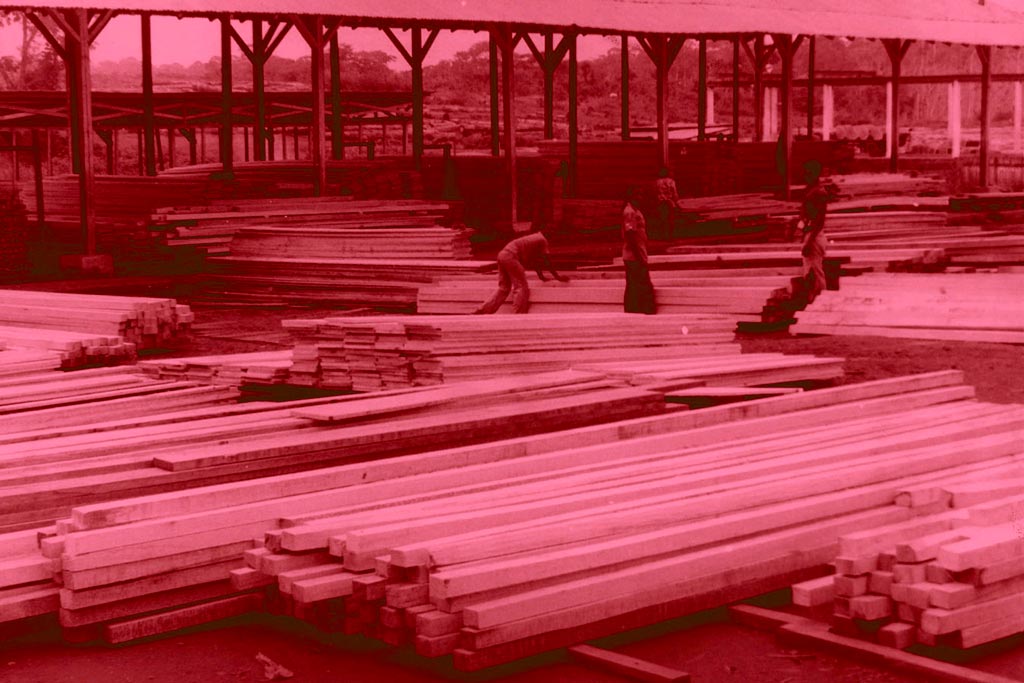
1938
In the same vein, ‘Rougier, Chollet et Cie’ decides to start producing plywood from Okoumé, a key Congo Basin tropical hardwood
1930
The company is still based in Niort but has moved its manufacturing activities to rue Saint Symphorien. The firm begins the production of plywood, still using poplar wood. This is our very first new product!
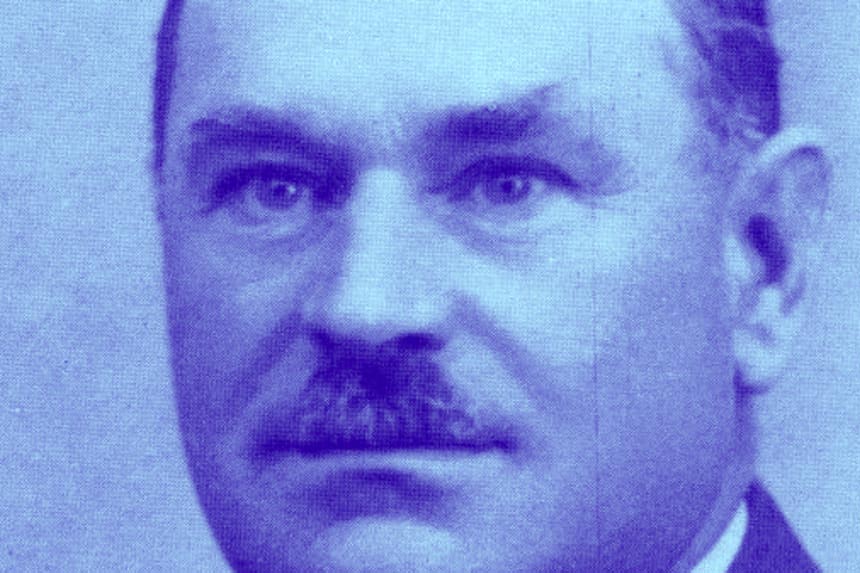
November 3rd, 1923
It all began with the foundation of a limited partnership called ‘Rougier, Chollet et Cie’ which manufactured and sold butter crates and rotary-cut wooden cheese boxes to the dairy industry in the Poitou-Charentes region.
Alexandre Rougier headed up the company, of which he was also the main shareholder. The company opened its premises at 90 rue de la gare in Niort, the administrative centre of the département of Deux-Sèvres. The first factory used poplars from the marshy marais poitevin area.